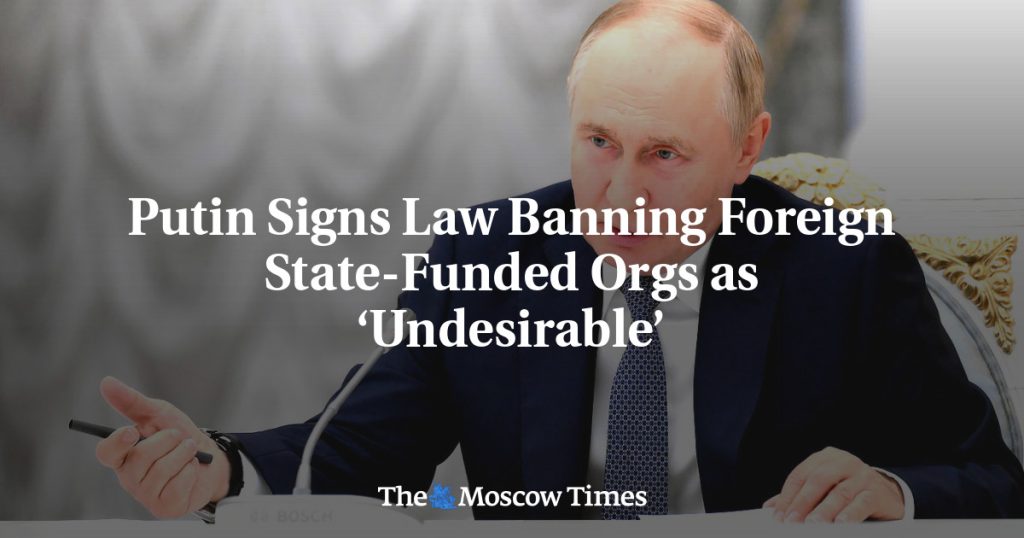Summarize this content to 2000 words in 6 paragraphs
President Vladimir Putin on Thursday signed a law expanding legislation on “undesirable” organizations to include state-sponsored entities in addition to non-governmental organizations.
Since introducing their “undesirable” list in 2015 to crack down on foreign-funded NGOs, Russian authorities have expanded the law to target independent news outlets, human rights groups, environmental organizations and educational institutions.
Under the law, members of “undesirable” organizations face up to four years in prison, while leaders can face up to six years. These groups must cease all operations inside Russia, and it is illegal for individuals and media outlets to republish or share their content.
Russian lawmakers began work on the expanded legislation earlier this summer to close what they called a “legal gap” that previously prevented authorities from labeling state-affiliated organizations as “undesirable.”
“Organizations created by government agencies from the United States, the United Kingdom, and other European countries are carrying out activities against Russia,” State Duma Chairman Vyacheslav Volodin said in June.
Experts believe the newly expanded legislation could also be used to target state-backed media outlets such as the BBC, Deutsche Welle and Radio Free Europe/Radio Liberty (RFE/RL).
The Moscow Times is among a growing list of nearly 200 organizations currently designated as “undesirable” by Russia’s Justice Ministry.


